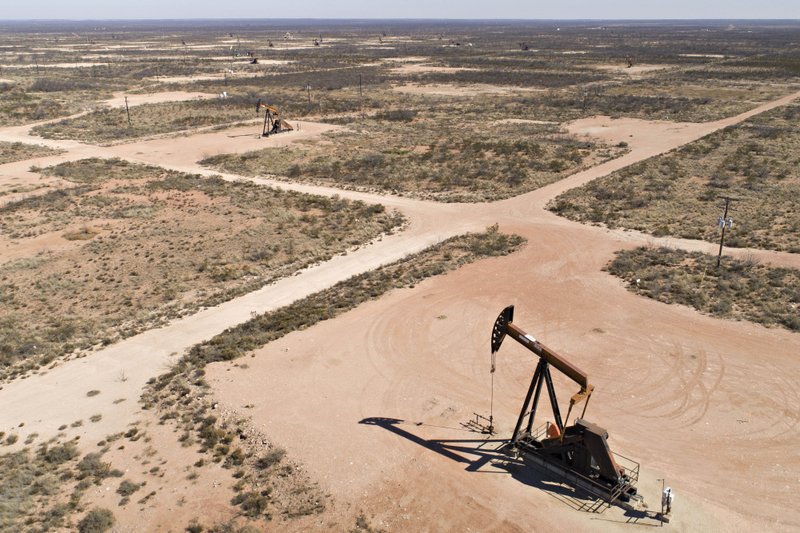Concho Resources' chief executive officer trumpeted his $8 billion acquisition in the Permian shale basin as a "road map" for consolidation in America's hottest drilling play, even as investors took a warier look at the price tag.
The buyout of rival RSP Permian in an all-stock deal would create the basin's biggest producer, at a time when the industry is moving toward ever-larger, more complex operations to supersize the shale boom. Despite the hefty premium attached to the deal, Concho CEO Tim Leach said he saw no drop-off in interest for other acquirers in the region.
"This is a road map for in-basin consolidation," said Leach, who founded his first company in the Permian 21 years ago. "I see the Permian getting more efficient, not less efficient, as we do these full-scale developments. The attraction in our industry to the Permian will just continue to grow."
The purchase price, which JPMorgan Chase & Co. estimated at $82,000 per acre, appeared to generate some heartburn for Concho investors, however. The Midland, Texas-based company fell as much as 10 percent in New York trading, their worst intraday performance in almost eight months.
The "punchy" price leaves Concho on the defensive, even though the deal should add to company earnings once it closes, JPMorgan analyst Arun Jayaram said in a note to clients. "The key for the stock will be for management to justify the high acreage cost."
The deal is expected to close by September.
The deal announced on Wednesday would be the biggest in the history of the Permian, the region in West Texas and New Mexico that has been at the heart of the U.S. drilling renaissance. It immediately stoked speculation about who might be bought next.
Leach said the deal, which represents a 29 percent premium to RSP's closing price on Tuesday, was justified by the "underlying economics of the wells." RSP has large blocks of acreage, much of it contiguous to Concho's holdings, allowing for more efficient drilling. The company also has a history of top execution that will make its holdings even more valuable, he said.
"You're taking two great companies that trade at the top of their peer groups and putting them together," he said. "The cash flows you can generate and the kind of capital returns you can show to investors, I think over time will compare very well."
Among Permian deals, the purchase would top Exxon Mobil Inc.'s acquisition of assets from the Bass family for as much as $6.5 billion last year and Encana Corp.'s purchase of Athlon Energy Inc. for $7.1 billion in 2014.
The move comes as oil majors and independents focus spending in the region. It "has the potential" to increase shares for small-cap drillers operating there, and may trigger a run on them by bigger producers, said Leo Mariani, an Austin-based analyst for NatAlliance Securities.
"We've seen pretty poor performance for U.S. exploration and production stocks over the past six to nine months, despite the fact that oil prices have done extremely well," Mariani said. "The sector needs a catalyst."
Concho, with a market value prior to the deal of more than $23 billion, will pay 0.32 share for each share of RSP. That's equal to $50.24 per RSP share. After the deal closes, Concho's shareholders will own approximately 74.5 percent of the combined company, with RSP shareholders owning the rest. Concho will also take on $1.5 billion of RSP's debt.
For the last couple of years, oil executives have talked about the need for mergers in the region, historically dominated by medium-size companies rather than giants such as Exxon or Chevron Corp.
Creating super-size shale producers could reduce operating costs as the techniques used to squeeze oil from shale rock become more capital intensive. For example, companies are drilling long horizontal wells as long as 10,000 feet, often straddling acreage owned by several operators.
Concho pumped the equivalent of 193,000 barrels a day last year, while RSP produced 55,000 barrels a day, according to the companies' annual accounts. Concho said the combination will create the largest crude oil and natural gas producer from unconventional shale in the Permian.
"The deal has the potential to spark an arms race in the region," said Roy Martin, senior analyst at consultant Wood Mackenzie in London. "It's going to send a shiver down the spines of other companies."
Information for this article was contributed by Jim Polson and Javier Blas of Bloomberg News.
Business on 03/29/2018
